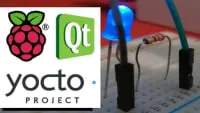
Designing Hardware for Raspberry Pi Projects 
Explore the essentials of Designing Hardware for Raspberry Pi Projects ▼
ADVERTISEMENT
Course Feature
![]() Cost:
Cost:
Free
![]() Provider:
Provider:
Coursera
![]() Certificate:
Certificate:
Paid Certification
![]() Language:
Language:
English
![]() Start Date:
Start Date:
29th May, 2023
Course Overview
❗The content presented here is sourced directly from Coursera platform. For comprehensive course details, including enrollment information, simply click on the 'Go to class' link on our website.
Updated in [March 06th, 2023]
This course, Designing Hardware for Raspberry Pi Projects, is the fourth course in a specialization and focuses on applying experience and knowledge gained in the first three courses to build physical electronics hardware. Through four modules, students will learn how to use free and open-source software to simulate circuits, create professional looking electrical schematics, design a physical PCB, and co-design electrical and mechanical systems. By the end of the course, students should feel comfortable using free and open-source software to design their own printed circuit board and any bracketry or case to hold it, customized for their application.
[Applications]
Upon completion of this course, students should be able to apply the knowledge and experience gained to design their own physical electronics hardware. This includes the ability to simulate circuits, create professional looking electrical schematics, design PCB layouts, and co-design electrical and mechanical systems. Students should also be comfortable using free and open-source software to design their own printed circuit board and any bracketry or case to hold it, customized for their application.
[Career Paths]
1. Embedded Systems Engineer: Embedded systems engineers are responsible for designing, developing, and testing embedded systems for a variety of applications. They must have a strong understanding of hardware and software design, as well as the ability to troubleshoot and debug complex systems. With the increasing popularity of Raspberry Pi, embedded systems engineers are in high demand and the field is expected to continue to grow.
2. Robotics Engineer: Robotics engineers are responsible for designing, building, and testing robots for a variety of applications. They must have a strong understanding of electronics, mechanics, and computer science, as well as the ability to troubleshoot and debug complex systems. With the increasing popularity of Raspberry Pi, robotics engineers are in high demand and the field is expected to continue to grow.
3. IoT Developer: IoT developers are responsible for designing, developing, and testing Internet of Things (IoT) applications. They must have a strong understanding of hardware and software design, as well as the ability to troubleshoot and debug complex systems. With the increasing popularity of Raspberry Pi, IoT developers are in high demand and the field is expected to continue to grow.
4. AI/Machine Learning Engineer: AI/Machine Learning engineers are responsible for designing, developing, and testing AI/Machine Learning applications. They must have a strong understanding of hardware and software design, as well as the ability to troubleshoot and debug complex systems. With the increasing popularity of Raspberry Pi, AI/Machine Learning engineers are in high demand and the field is expected to continue to grow.
[Education Paths]
1. Electrical Engineering Degree: Electrical engineering is a field of engineering that deals with the study and application of electricity, electronics, and electromagnetism. It is a rapidly growing field with many opportunities for advancement. Electrical engineers are responsible for designing, developing, and testing electrical systems and components. They also work on the development of new technologies and products. Electrical engineering is a great choice for those interested in the design and development of electrical systems and components.
2. Computer Engineering Degree: Computer engineering is a field of engineering that combines the principles of computer science and electrical engineering. It is a rapidly growing field with many opportunities for advancement. Computer engineers are responsible for designing, developing, and testing computer systems and components. They also work on the development of new technologies and products. Computer engineering is a great choice for those interested in the design and development of computer systems and components.
3. Robotics Engineering Degree: Robotics engineering is a field of engineering that combines the principles of mechanical engineering, electrical engineering, and computer science. It is a rapidly growing field with many opportunities for advancement. Robotics engineers are responsible for designing, developing, and testing robotic systems and components. They also work on the development of new technologies and products. Robotics engineering is a great choice for those interested in the design and development of robotic systems and components.
4. Mechatronics Engineering Degree: Mechatronics engineering is a field of engineering that combines the principles of mechanical engineering, electrical engineering, and computer science. It is a rapidly growing field with many opportunities for advancement. Mechatronics engineers are responsible for designing, developing, and testing mechatronic systems and components. They also work on the development of new technologies and products. Mechatronics engineering is a great choice for those interested in the design and development of mechatronic systems and components.
The development trends for these degree paths are rapidly changing as technology advances. Electrical engineering, computer engineering, robotics engineering, and mechatronics engineering are all becoming increasingly important as the world becomes more connected and automated. As technology advances, these degree paths will become even more important as they will be necessary for the development of new technologies and products. Additionally, these degree paths will be necessary for the development of new applications and systems that will be used in the future.
Pros & Cons

Incredibly helpful

Highly recommended

Comprehensive coverage of Raspberry Pi hardware

Clear and easy to understand instructions

Valuable resources for further learning

None identified
Course Provider

Provider Coursera's Stats at AZClass
Discussion and Reviews
0.0 (Based on 0 reviews)
Explore Similar Online Courses

Leadership Through Design Innovation

Development Economics

Python for Informatics: Exploring Information

Social Network Analysis

Introduction to Systematic Review and Meta-Analysis

The Analytics Edge

DCO042 - Python For Informatics

Causal Diagrams: Draw Your Assumptions Before Your Conclusions

Whole genome sequencing of bacterial genomes - tools and applications

Powering your Home Projects with Raspberry Pi

Creative Audio Programming on the Raspberry Pi

Raspberry Pi with embedded Linux made
 Related Categories
Related Categories
 Popular Providers
Popular Providers
Quiz
 Submitted Sucessfully
Submitted Sucessfully
1. What is the focus of Module 1?
2. What type of software is used in this course?
3. What is the focus of Module 4?


Start your review of Designing Hardware for Raspberry Pi Projects